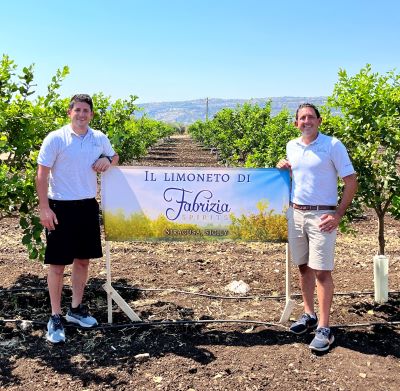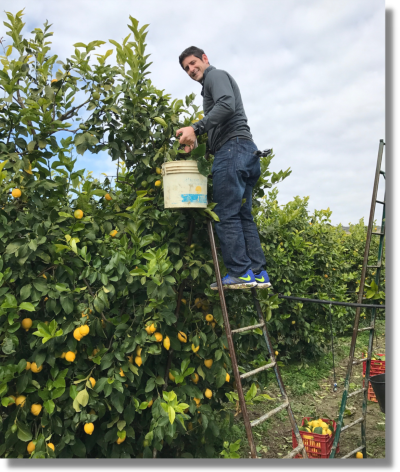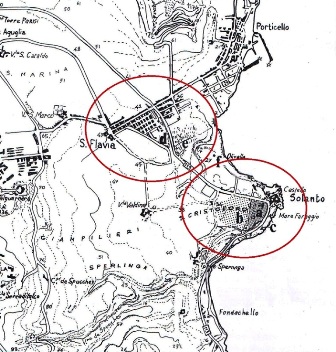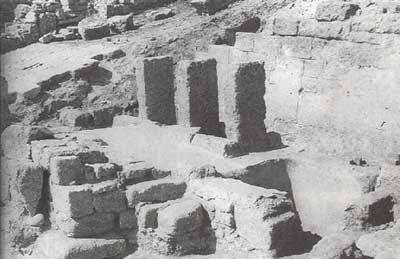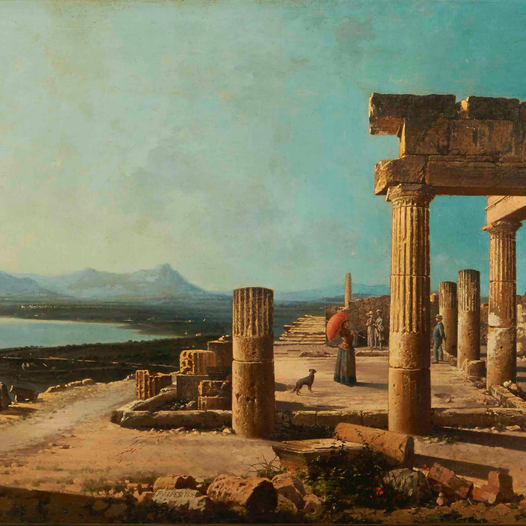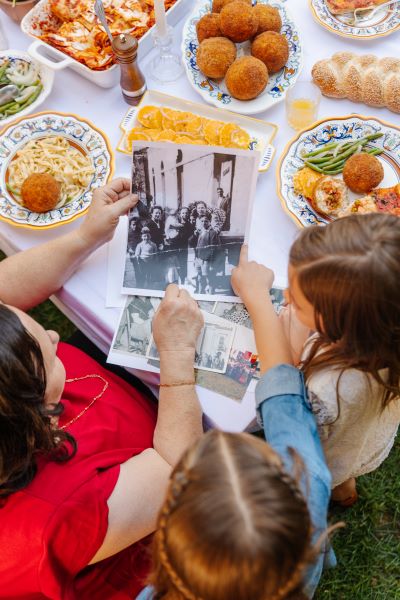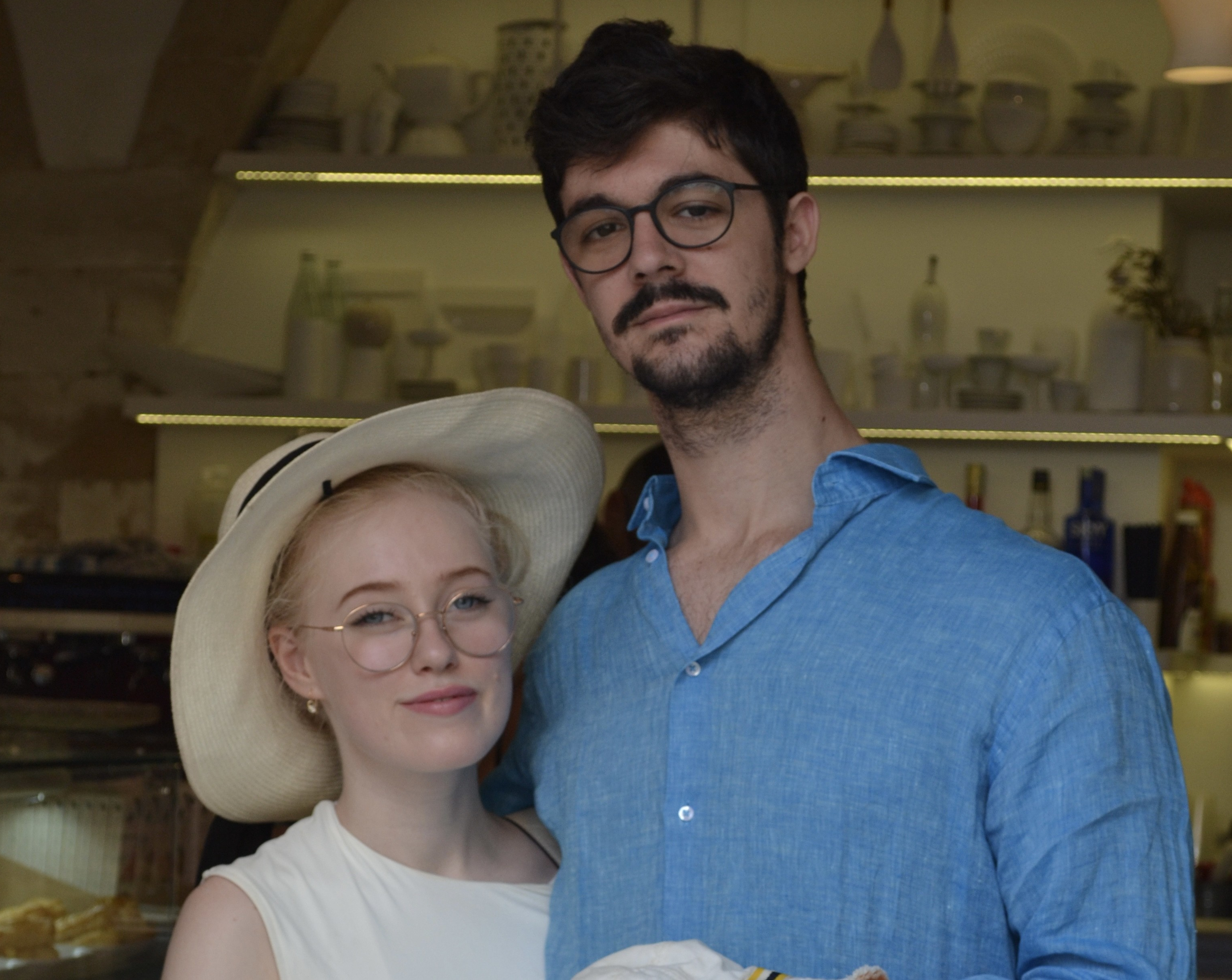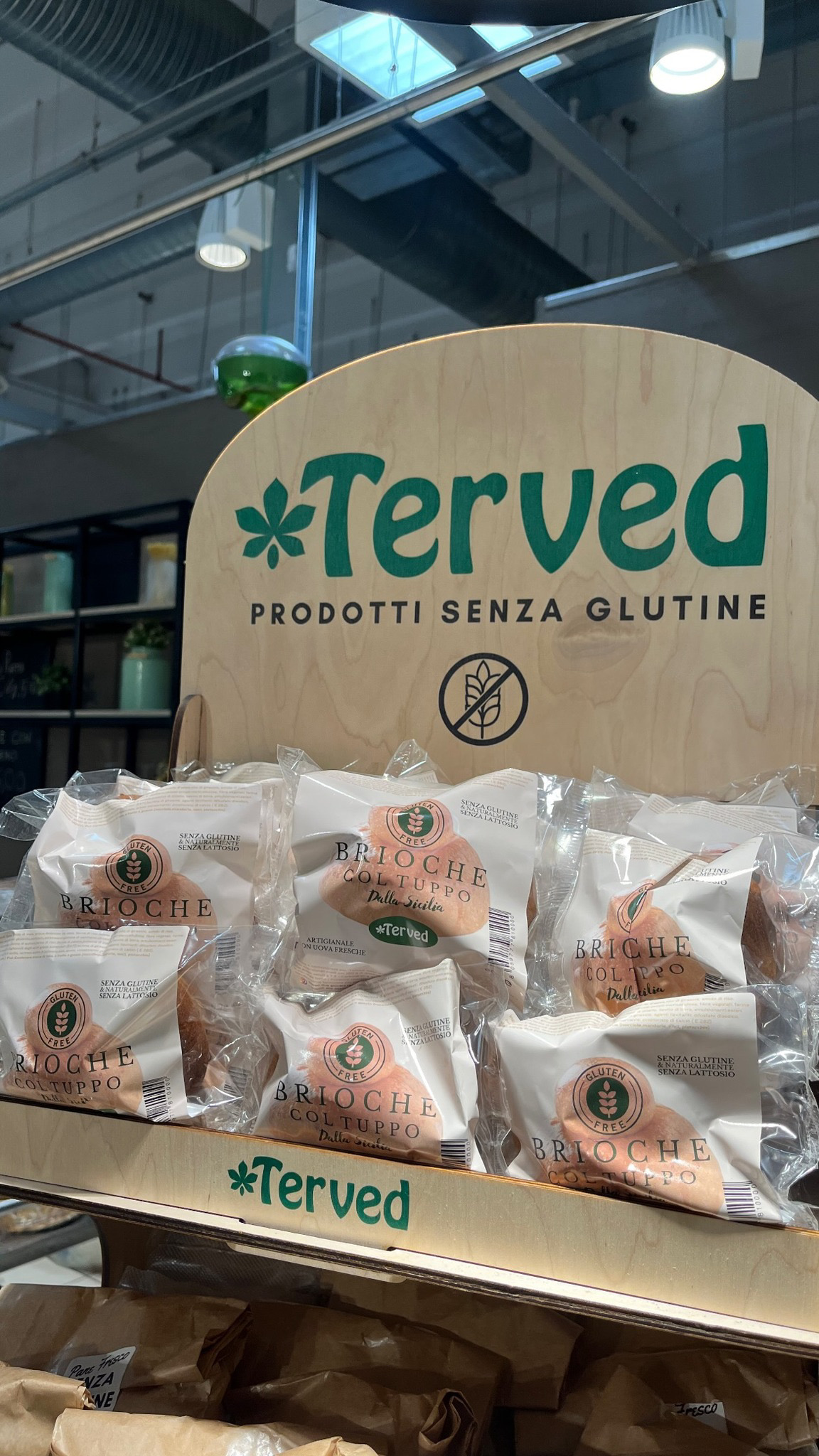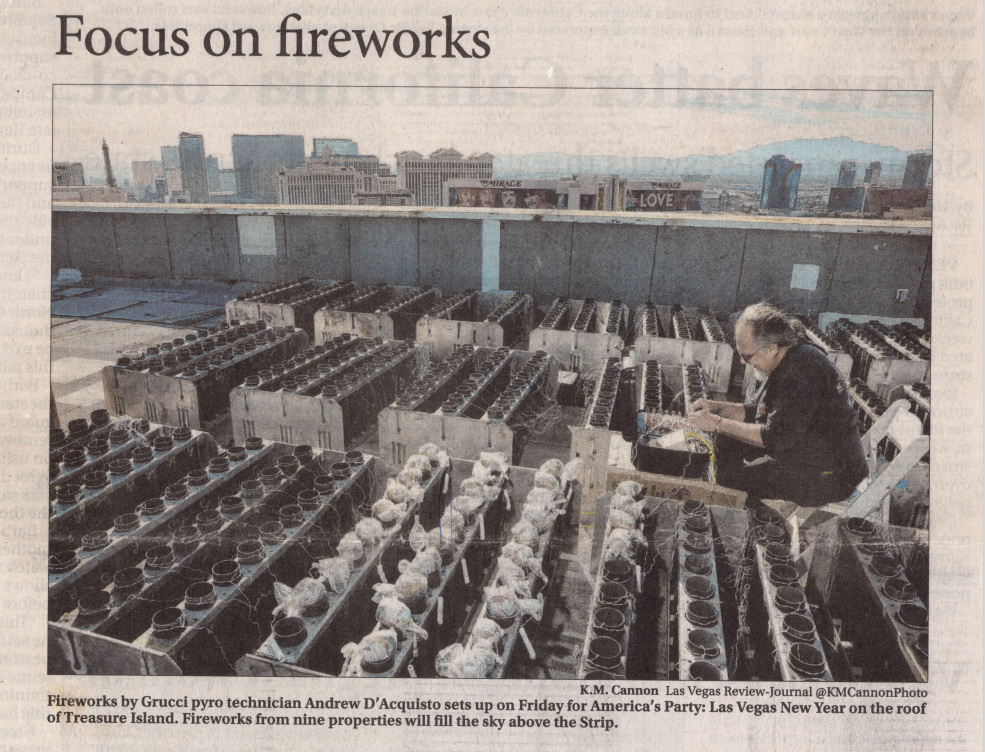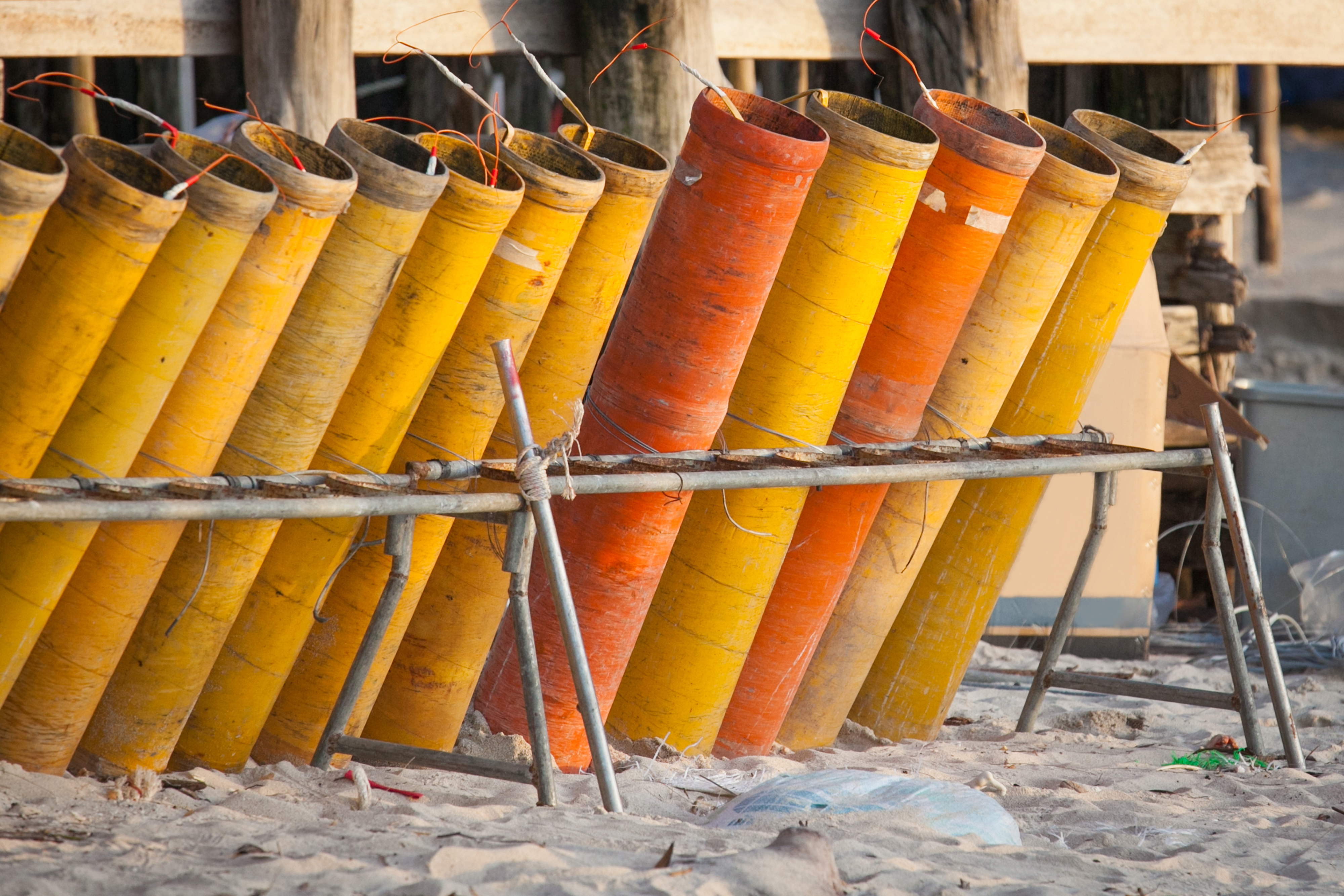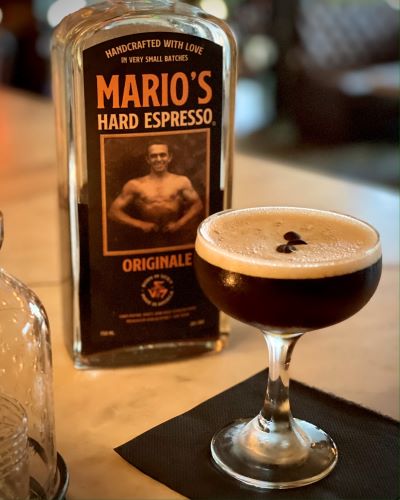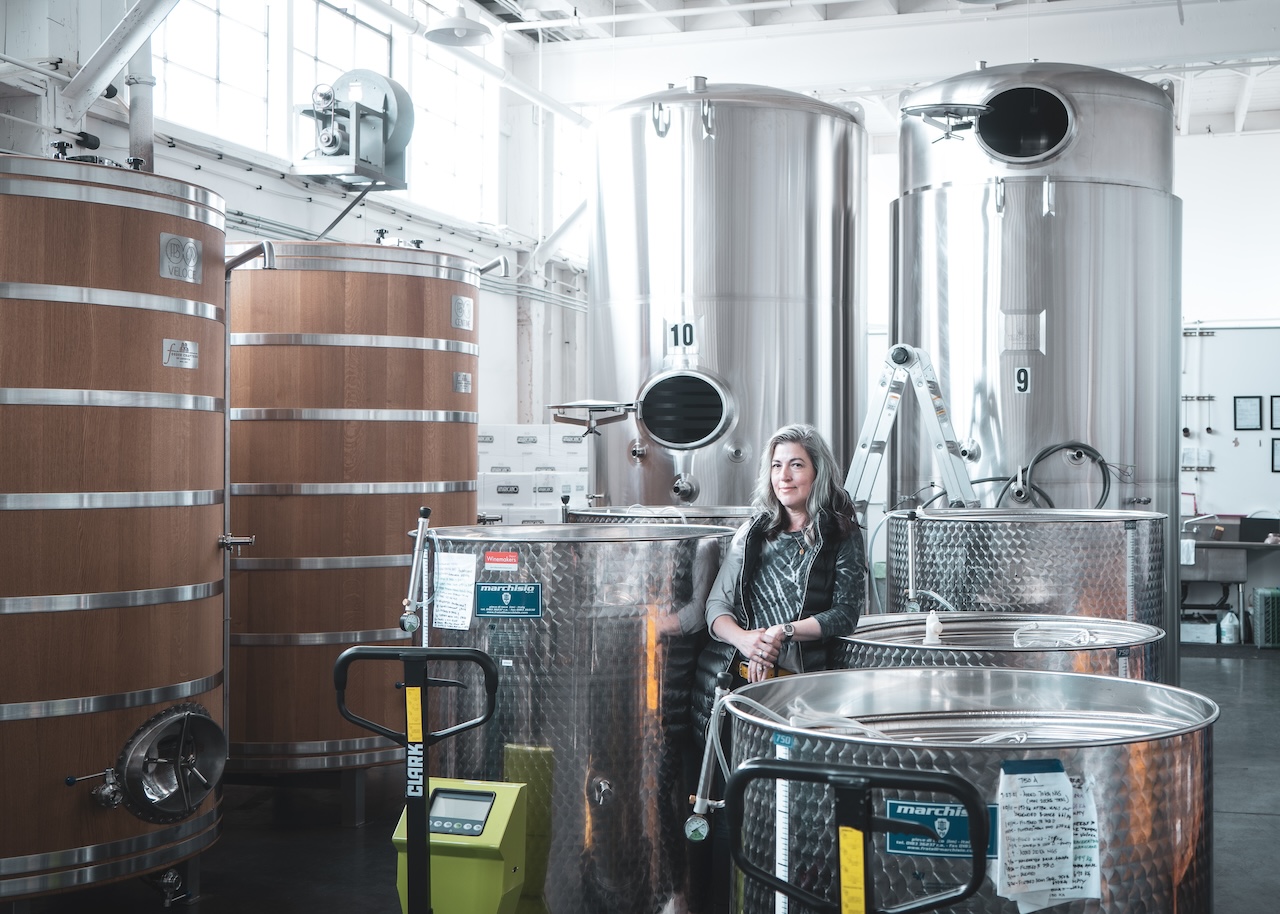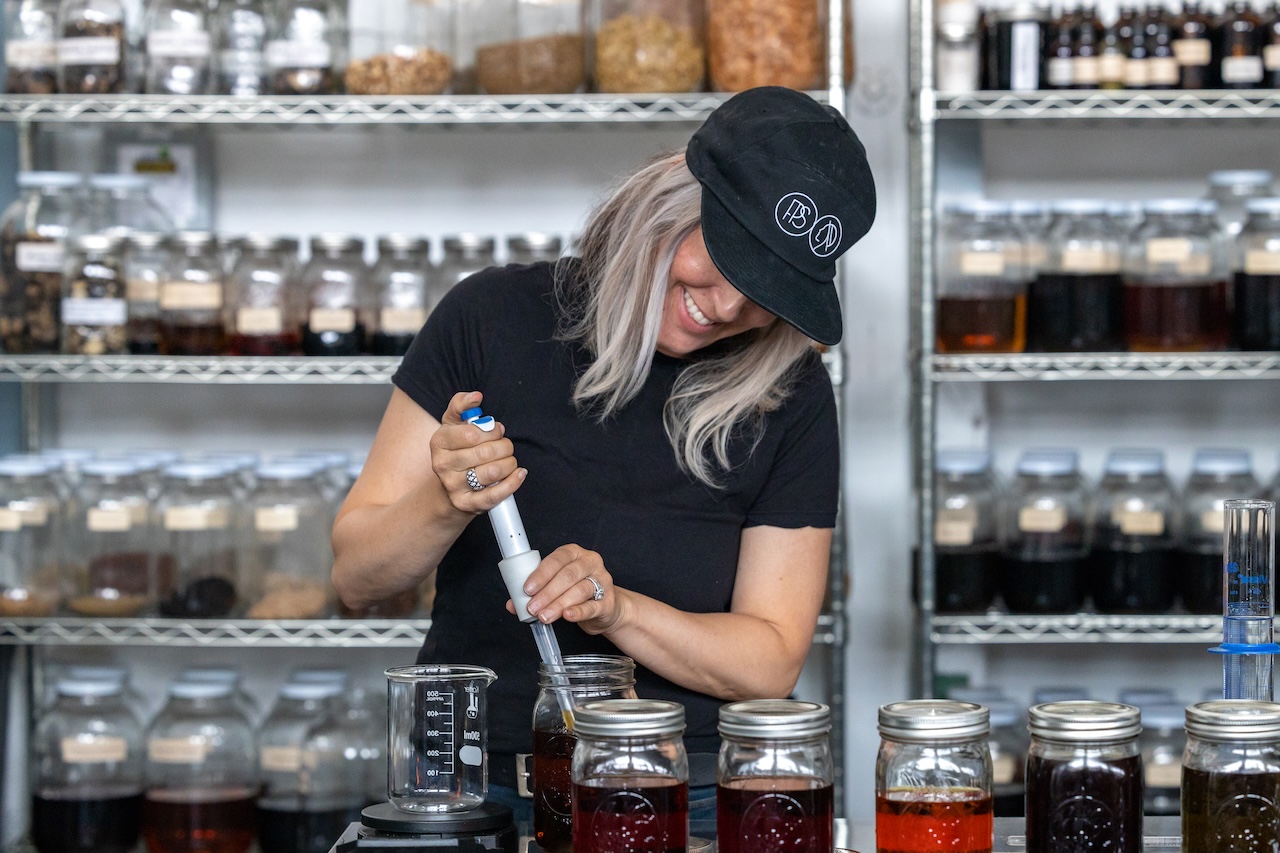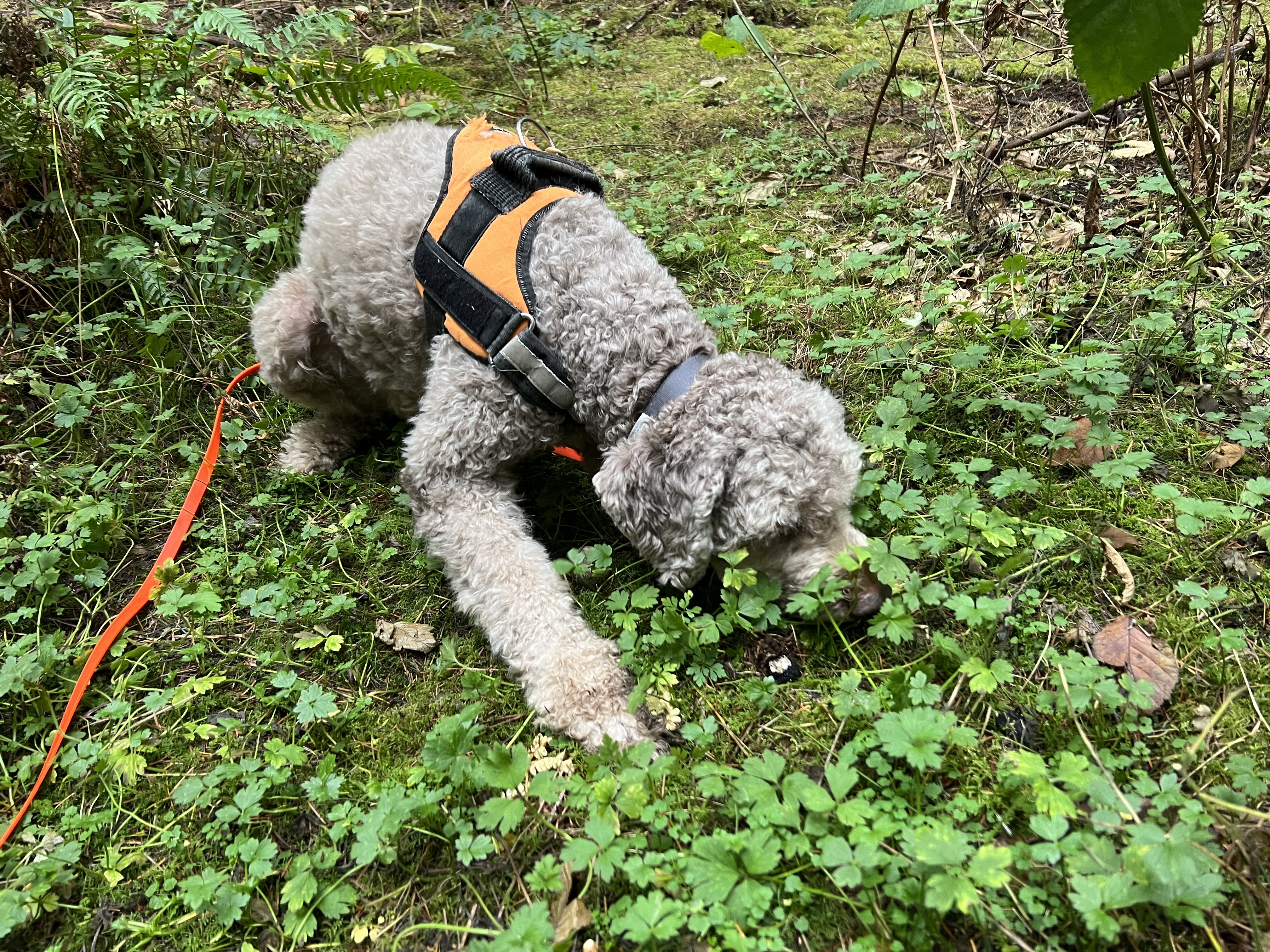Rachel Villa was living in Oxnard, California, working for a military child care program, and going through a divorce when a counselor asked her how she was feeling.
"Well, I'm feeling pretty crappy," she remembers saying.
At that moment, she was facing an existential crisis. She'd been a military wife and put her career on hold, and now she faced living on her own. She didn't know what she wanted to do with her life.
The counselor asked Rachel where she might want to take a vacation, to which Rachel responded, "You know what? I've never been to Europe, so I'm going to Italy."
The counselor told her to put it on her dream board, something Rachel had never heard of. Soon, she was clipping a cartoon picture of Italy from a magazine and tacking it on a board. That push-pin dream board evolved into a Pinterest page. Eventually, thanks to a chance encounter with a friend of a friend, she found herself facing a whole new world of possibilities in Sicily: a husband, a vineyard, and a family.
I recently had the opportunity to chat with Rachel about how her dream board became a reality and how she helped launch Catania-based Gimmillaro Family Vineyards.
What brought you to Sicily?
In another life before my ex-husband, I was in Pensacola, Florida, where my dad was stationed. Pensacola is the cradle of naval aviation and where the military trains all the pilots that we have agreements with.
During my college internship, I got a job on base that provided housing. I was there with all these other girls; we were with the officers and all these Italian Navy pilots. And man, that was fun. Every weekend, we would pile up in my Jeep and go to Pensacola Beach.
I stayed in touch with one guy (Ruggiero)—totally platonic—over email for 20 years. While dealing with this dream board, I decided to message him and tell him I was looking to come to Italy.
He said, "Where are you going to go?" And I said, "I don't know. There are a couple of jobs available. One of them is in Naples." He said, "You do not want to go there." And I was like, "Well, if it gets me to Italy, that's better than nothing!"
I applied for the job, and I got it. There were over a thousand applicants, and out of seven people, I was one who got this training position to be a manager with a child youth program.
Before I went to Naples, they wanted people to do some temporary assignments. So they sent me to Sicily at Sigonella Naval Air Station, where my friend was stationed in the Italian Navy. So I messaged him and told him when I was coming. And he said, "Actually, I'm on an assignment with the Italian Navy for the beginning of that time, but I have a friend who I can hook you up with to show you around."
I got a message from this guy named Marco, and I could hear his accent through the way he wrote, "I hope I do not disturb you."
I was like, "Who is this?" I started looking at his pictures, and he seemed to be in the military. And I was like, okay, so this is probably Ruggiero's friend. So I told him when I was arriving, and he offered to pick me up. And I was like, "No. My boss is picking me up, but just meet me at the residence." And he was waiting for me there. He was there every single night for the next 90 days.
Apparently, I had a boyfriend. Within 10 days of meeting this guy, he took me to meet his mom. And after 90 days, I had to go back to the States, and I was like, "I have a boyfriend in Italy. What am I going to do?"
I was not looking for it at all. I just was looking for an adventure. But gosh, I found a man.
He kept saying that he was a farmer and worked as an agricultural scientist, which was his degree. He was telling me some things about that, but I didn't ask many questions. I was not taking him seriously. I wouldn't say I didn't care. It was about me. It was me-time.
So, I came back to Oxnard and realized, "Wow, if I don't go back to Sicily, I don't know what we're going to do. This is going to be a crazy long-distance relationship. I'm going to have to go back and forth from Naples to Sicily every so often to see this guy. Is that even a relationship? Do I want to do that?"
During this training period, which took about a year, I ended up going to Key West, Florida, and everywhere else except Sicily. I finally decided to take him seriously as this relationship was progressing.
I had no idea that every time he went to a vineyard, it was his. I came to visit, and it was in October of 2017, and he took me to one of his locations where he was going to be doing a vendemmia, which is a grape harvest; our mutual friend came down, and his sister was there, and all these people he knew came. And I was like, "So whose farm is this?" And Marco was like, "It's mine." And I was like, "We have been together for a year. How did I not know that you had a vineyard?"
He said, "I don't come here very often. We just came for the vendemmia, and I trim the branches throughout the year and tend to the soil, but this is my vineyard."
I suddenly felt really out of my league and started getting emotional. And I said, "Marco, I don't know if this is going to really work because I have been a military kid my whole life. I move a lot, and I'm going to go to Naples, and you're here, and that's a lot of back and forth, and I just don't think I can do it. I need somewhere where I can plant my roots."
He literally bent down into the dirt. He picked a little bit up, held my hand, and said, "Plant your roots here with me."

Tell us how the vineyard evolved.
It was just a plot of land he was making patronale with, like garage wine. It's what the locals make for themselves.
As a Californian, I had a little knowledge of what people want when they go to a vineyard, especially somewhere like Santa Ynez Valley or Temecula. We're expecting meals, a beautiful wine tasting, and sometimes just a flight and just sitting there and enjoying the view. But definitely some customer service and a learning experience.
One of the things I noticed while doing some reconnaissance wine tastings around here was that nobody was having people come and do the harvest just for fun. There were opportunities to do a grape stomp, but nobody was being allowed to do real hands-on. And I thought, "Why is there some legal reason?"
Marco looked it up and said, "Actually, there is a legal reason. There need to be 'tutors,' and the work must be declared."
And I was like, "Well, how do you declare this work?" Marco explained that it would need to be a "demo."
I said, "So, we can do it. We're not going to get in trouble if we have people come, and we could even give them a barbecue." He said, "Correct, because the product is separate from the main production. Then they've done the work, and we can show them how to make a patronale."
I was like, "Oh, Marco, Americans would love that!"
And so we've come up with this from the reconnaissance and knowing nobody else was doing any kind of meaningful hands-on at the level people really wanted. Having a tour of a beautiful vineyard and a beautiful winery with all this professional equipment isn't educational. It's a tour of something already established and expensive. But people who want to know how to grow and produce wine are not really learning how to do it. So we came up with a year of vinification, a year of wine, which is all the processes.
So we have a harvest. It starts with that. We bring people out, they harvest, and we separate, we squish, and then we transport to the place where we do the vinification with those people, and then we give them a barbecue.
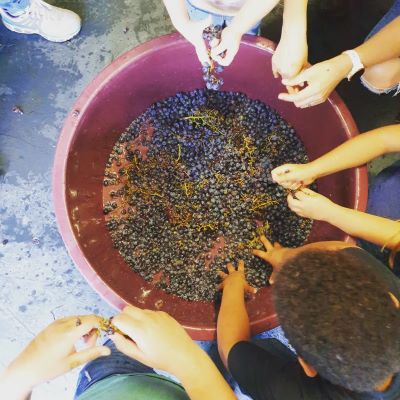
The next process is turning the grapes, the maceration. When it's in the containers with the skins, you can't just let it sit there; you have to move it around. Could I make an event out of that? Possibly. We haven't yet.
Then, the next process is moving the liquids to the travaso and then bottling, and it still has to sit in the bottle for a while. So, I thought, "I'll have another event where we do a wine tasting, and we invite the people that came to the vendemmia and say, 'Let's go bottle your wine, and we'll have a party.'"
We had a wine bottling event, and about 12 people showed up. Five of them had been to the vendemmia before. They absolutely loved the thought that their effort had gone into the bottles and the liquid they were bottling.
We let them do the hand bottling because we didn't have the machine. We just filled it up with a tap, and it dripped everywhere. It was such a mess, but everybody had the best time!
After the fact, I thought, okay, what do people really like the most? Did they care about the food? No, they cared about the experience they weren't getting anywhere else. And I was like, "How can I turn this into a moneymaker?"

What challenges have you faced along the way?
It's been a process of trying to find out how I can market this because if I deal with just Italians, there's a lack of interest around here. The foreigners are where I am focusing, especially the people from the base here, who speak English, and I know what they want. The problem is they require things that most tourists or expats wouldn't because they live here and they have to deal with the roads. And some of them are very homebody. So I was like, "Well, I have to rent a van or get a bus and have an event. And I've got to calculate that into the cost of the whole thing."
I did a vendemmia with 60 people. I had a 30-person van and another 30-person van. I had to eat the cost because 15 people didn't show, and I still had to pay for that or otherwise ask the other people to pay more after the fact. And that was like, "I'm not going to do that." I'm learning on the job.
We finally have a vintage. We have a 2022, and we lost all of our grapes at our primary vineyard in 2023 due to a fungal blight, but we had a secondary vineyard that we bought grapes for as an experiment, so we technically have a 2023 as well. We are not going to label it. We're going to keep it a patronale because, legally, it's not registered on our land, so we can't sell it that way. We can sell it as a patronale, though.
So we technically have two vintages, and this year, we're going to have a white. And I'm trying to stick to the guns here and be a completely bio vineyard. It makes your job exponentially more difficult. You're highly volatile. Your processes have to be dead on. There are certification processes and criteria that need to be adhered to in order to qualify.
White has been very hard. We've lost it every year for the last five years. It gets skunky so fast. The summers have been unusually hot. We don't have a temperature-controlled environment, and we are off-grid, which is again part of our process of having a bio vineyard. This year, we are working with a nearby cantina to be sure to follow the white properly.
We could get a business loan, dredge the land out, get some water flow from the city, have a sewer line put in, and do some irrigation, as well as all the things we need to have what the other big vineyards are doing. But we're trying to be off-grid to show people that it can be done and can be done well. A lot of times, when these producers grow their production, they just abandon those simpler ways in favor of the more efficient industrialized vinification styles. And while those are great, we're just trying to be as authentic and practical as possible.
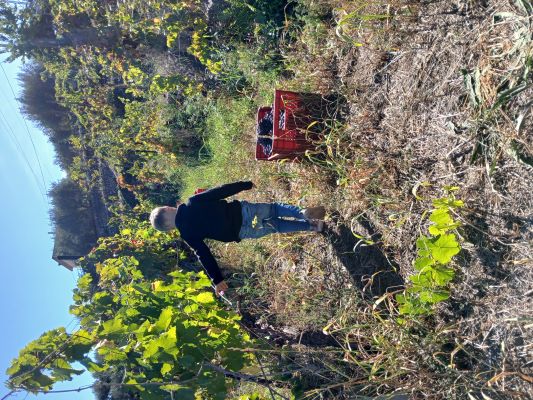
What are your plans for the future?
We are working up to more events as we develop different wines. For instance, we want to do a sparkling wine in the future. Of course, we want to keep the demo vendemmia. The best way to teach people about wine is to let them help create the basic/patronale wines and also let them work on the vineyard.
We have hosted several groups from the Sigonella base to volunteer their time for community service credits with their command. They come on weekends and prune or plant cover crops on the terraces. Not only is this helpful for the vineyard, but it's also a way to get our name out there as a place where you can really learn about the wine industry.

What experience do you hope to share?
The ups and the downs. I want people to see that it doesn't mean you're wealthy to have a vineyard. It just means you're putting effort into something and trying to make it great. And sometimes, it fails. And what is the outcome? I'm going to try to pull myself up like they say, "by my bootstraps," get back up, and start going and keep it going. I'm not giving up.
A lot of times, people just think that every year, the wine's going to taste the same as last year, even though you have these wine tastings, and everybody says, "This is 2022. It has more berry flavor; these are the same grapes on the same land. This is 2023, and it tastes woodier, blah, blah."
It does taste different. I can't even explain why it tastes so different from one year to the next or why we have the same grape varieties. They're separated by three miles and taste completely different.
It's a beautiful thing, and I can see why people get so wrapped up in wine and everything about it. It's a challenge, and it's unbelievably rewarding. It is a science and an art. And then again, it's farming, so it's extremely volatile.
People have so many little experiments up on Etna. We are friends with this neighbor, and he's trying to make a sparkling out of a grape that nobody would've made a sparkling out of before. And he is like, "I'm going to do it. It's going to be amazing." And I love that positivity.
So when I have people come, and I am showing them all the work we've done, I'm not here for the applause. I'm here because it's like when I was a teacher, and I had a child that was very difficult, and other people were just constantly giving up on this child. How cruel is that to just give up on a child? It's finding that path out and finding another direction to do something. And that's what makes wine special: everybody has a different process.

If you enjoyed this article, consider subscribing to my newsletter for more content and updates!





